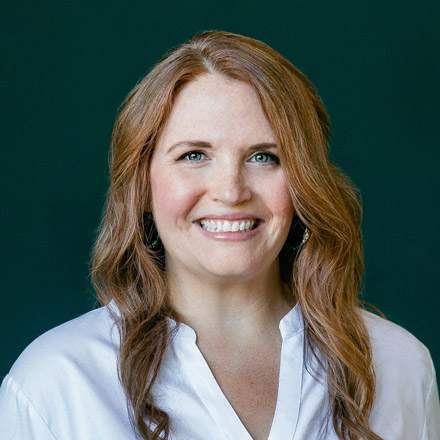Therapies to Support Your Baby’s Development
Babies and Bumps
March 24, 2024
Watching your baby grow and develop is a remarkable experience, but it’s natural to have concerns about whether they are meeting their developmental milestones. It’s worth noting there’s a wide range of what’s “typical,” and even from child to child – if you have more than one – you’ll probably notice some differences. You know your baby best, and if you’re concerned about development, you should know about the options available to you.
In this article, we’ll explore three main types of therapies – speech, occupational, and physical – as well as indicators for intervention, and avenues for seeking help.
Speech Therapy: Language & Communication
Speech therapy is a specialized form of therapy aimed at addressing communication disorders and improving speech and language skills. Just because babies have yet to reach the point of talking, doesn’t mean you can’t recognize and address impending challenges. For newborns, speech therapy focuses on laying the groundwork for future communication abilities.
Indicators for Intervention:
- Lack of cooing or babbling by six months
- Difficulty in making eye contact or responding to sounds by nine months
- Limited variety of sounds or words by twelve months
- Delayed development of gestures like pointing or waving
How it Helps:
- Encourages vocalization through interactive play and exercises
- Facilitates the development of listening skills
- Introduces strategies for parents to support language development at home
Occupational Therapy: Independence & Motor Skills
Way back when I was in health care marketing, the first time I heard the term “occupational therapy,” I thought it was related to job training (insert face palm emoji). In reality, it’s about the skills needed for daily living. For infants, this means supporting the development of fine motor skills, sensory processing, and self-care abilities, all of which improves baby’s ability to engage in everyday activities and interact with their environment.
Indicators for Intervention:
- Difficulty holding objects or bringing hands to mouth by six months
- Resistance to being touched or discomfort with certain textures
- Delayed reaching or grasping milestones
- Challenges with feeding or sleeping routines
How it Helps:
- Promotes motor skill development through guided activities
- Addresses sensory sensitivities and integration issues
- Supports feeding and swallowing techniques
- Advises parents on creating sensory-rich environments at home
Physical Therapy: Movement & Muscles
Physical therapy for infants concentrates on enhancing gross motor skills, muscle strength, and overall mobility. It aims to ensure that babies can navigate their environment confidently through age-appropriate levels of balance, flexibility, strength, coordination, and range of motion.
Indicators for Intervention:
- Persistent favoring of one side of the body
- Difficulty lifting their head when lying on their stomach by three months
- Delayed rolling, sitting, crawling, or standing
- Limited range of motion in limbs or joints
How it Helps:
- Provides exercises to strengthen muscles and improve coordination
- Encourages exploration of movement through guided play
- Addresses any underlying conditions affecting mobility
Importance of Early Intervention
To echo what I mentioned earlier, every milestone has a range for what’s considered typical, and every child develops at their own pace, reaching milestones at different times. Milestones exist as a way to help gauge when your child may need help. But getting any type of assessment, connecting to resources, and getting help doesn’t happen overnight. So, as soon as you sense that your baby’s development may be delayed, it’s time to take action.
Early intervention is paramount in addressing developmental delays. The first few years of a child’s life are crucial for laying down the foundation of their future abilities. By identifying and addressing developmental concerns early, parents can help their babies reach their full potential and minimize the impact of any delays on their long-term development.
Research consistently demonstrates the effectiveness of early intervention in improving outcomes for children with developmental delays. Studies show that children who receive these services are more likely to catch up to their peers and require less support as they grow older.
Private vs. Government Programs
When seeking therapy for your baby, you’ll have options available directly through individual therapists and specialized practices, which you would pay out-of-pocket or with the help of insurance.
Before you go that route, it’s also worth looking into whether you have access to government-managed and -funded programs, usually through your state or county. These programs aim to make therapy services accessible to all families. Eligibility for state-funded programs is usually based on criteria such as the child’s age and developmental needs, and – depending on where you live – family income may not always be a factor.
Researching Your Options
Researching therapy options for your baby can feel overwhelming, but there are resources available to guide you through the process.
Start by consulting your pediatrician, who can assess your baby’s development and provide referrals to appropriate therapy services if needed. Don’t forget – you know your baby best, so if their initial assessment isn’t in alignment with what you’re experiencing, don’t be afraid to probe and ask questions.
You can also reach out directly to state or county early intervention programs in your area to inquire about available services and eligibility criteria.
If your baby doesn’t qualify for that, but you still feel that services are needed, you can also explore working directly with providers. Don’t forget to ask whether they take insurance, and to discuss eligibility with your insurance company.
And remember – you’re not alone! As you’re navigating the resources available to you, ask your friends, family, and other parents in online or in-person groups you may belong to – more people use services like this than you may think, and there’s a wealth of information and support to be found in your network.
